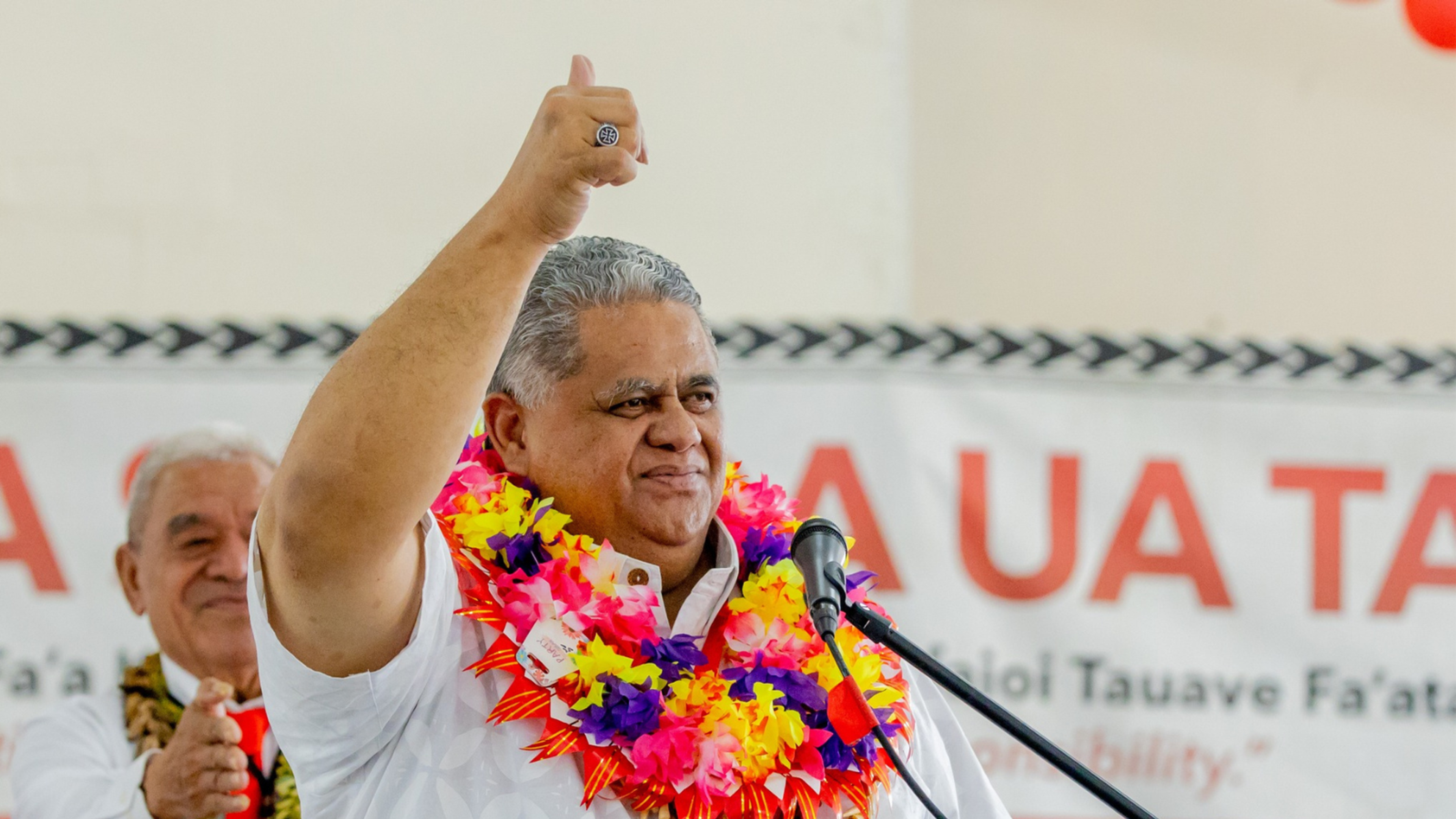

Decolonisation: Has Macron triggered a civil war in New Caledonia?
French President Emmanuel Macron and his Versailles parliament must revisit the Noumea Accord with pro-independence leaders to avoid further chaos in the Pacific paradise, a political expert says, as stranded Kiwis prepare to head home from the holiday hotspot.


Elsie Polosovai bids farewell as Miss Solomon Islands
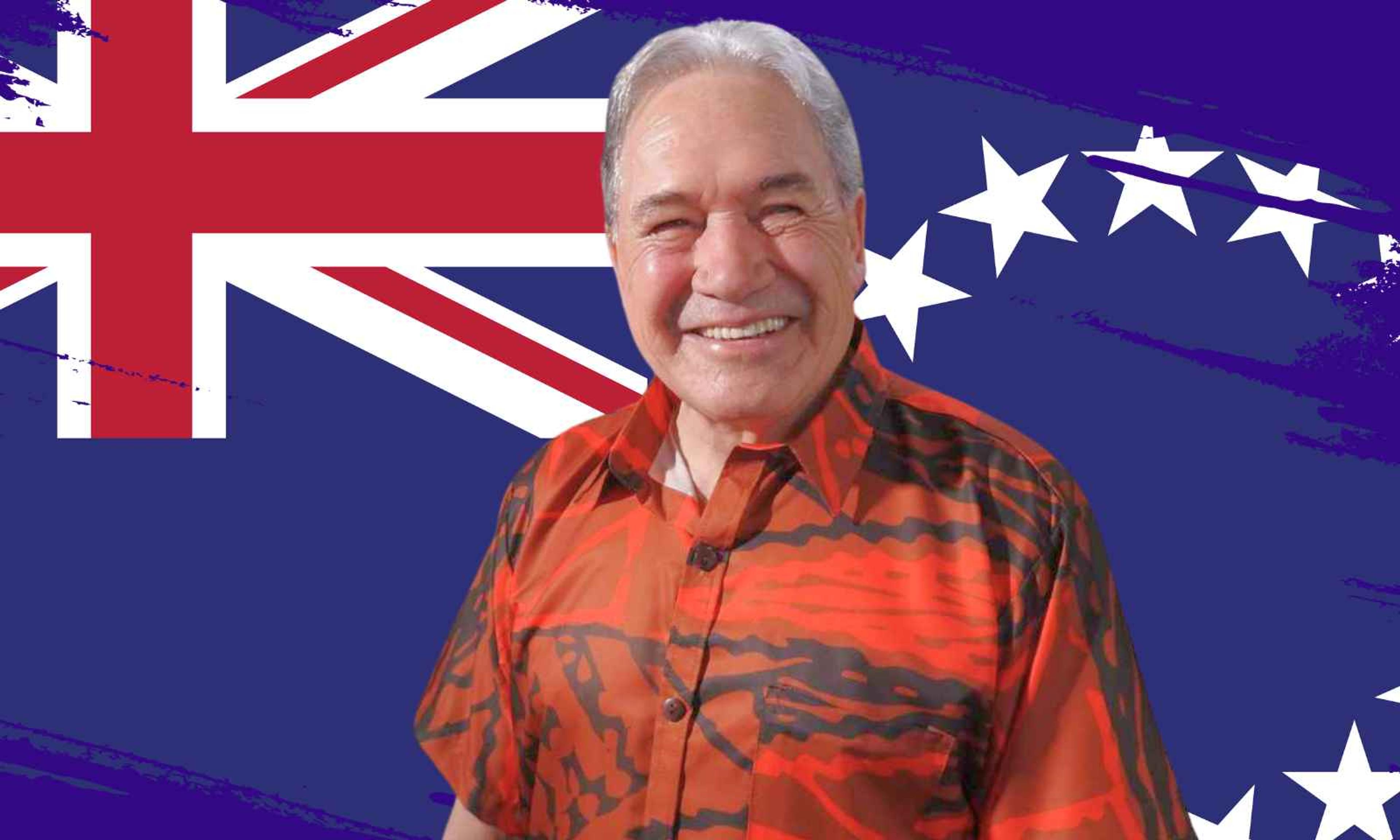
New consultation process vital to avoid rifts - Winston Peters
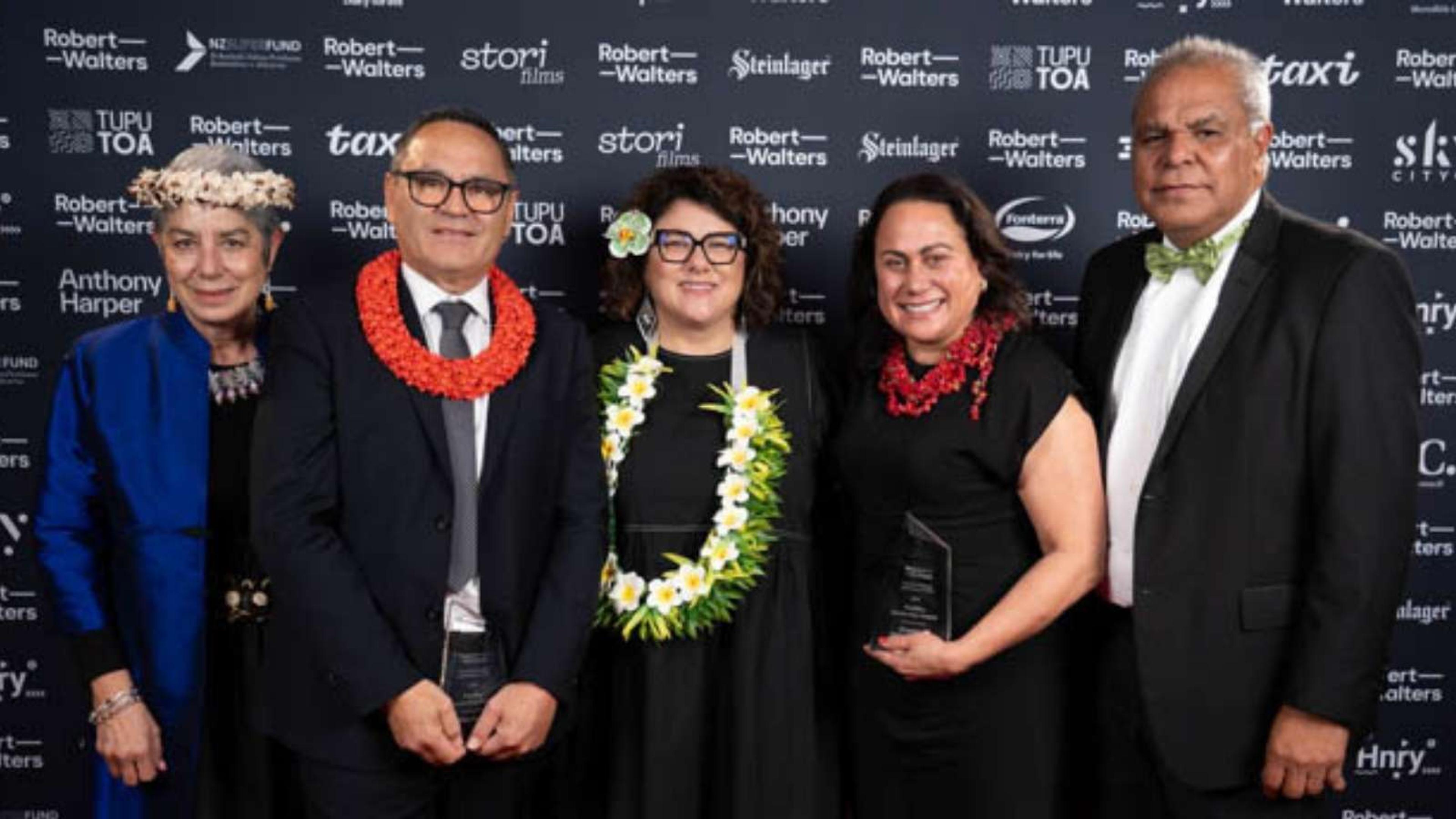
NZ award celebrates legacy and authenticity in Pacific leaders

FAST party confirmed winners with crushing majority in Sāmoa’s snap general election

Elsie Polosovai bids farewell as Miss Solomon Islands

New consultation process vital to avoid rifts - Winston Peters

NZ award celebrates legacy and authenticity in Pacific leaders
The political unrest in New Caledonia was bound to happen because tensions between France and the indigenous Kanak population have been escalating for decades, the head of Pacific Studies at Canterbury University Professor Steven Ratuva says.
At least six people have died and hundreds injured following rioting and looting in the capital Noumēa since 13 May over the French government’s decision to allow more voting rights to people who have moved from Paris to Noumēa in the last 10 years.
Ratuva told Pacific Mornings’ William Terite that the Kanaks rejected the move, adding that the anti-French movement has been around since the 1800s, 1900s, and 1990s.
Watch Professor Steven Ratuva’s interview below.
Ratuva said the Kanaks’ pro-independence supporters have been “preparing for this for a long time, given the circumstances.
“This is just a continuation of that and the anti-colonial movement. What sparked off the latest riots was the decision by France to change the constitution to make sure that more French were going to vote in the local election.
“They would be able to control the local politics and now a new amendment is going to take that away. It's going to be overshadowed by the French majority.”
New Caledonia is located about 2400km north of New Zealand and has a population of close to 270,000 people, with 41 per cent of them Kanaks.
The Pacific island nation was annexed by France in September 1853 and became a territory of the European superpower in 1946.
The Noumēa Accord, signed by the French government in 1998, promised to increase political power to New Caledonia and the Kanaks over a 20-year transition period.
But pro-independence leaders say France has continued to control the territory's military and foreign policy, immigration, police, and currency.
The Kanaks have been calling for independence for more than 30 years, and a referendum held in December 2021 - the third and final vote under the Noumēa Accord - rejected self-rule by 96 per cent (compared to 57 per cent and 53 per cent against independence in 2018 and 2020). The 2021 vote was boycotted by the Kanaks, who had called for the elections to be postponed due to the Covid-19 pandemic.
With French President Emmanuel Macron reportedly on his way to Noumēa with reinforcements, the experts are fearful the situation could “break out into a civil war?”
Ratuva said what was happening in the French territory was already part of a civil war.
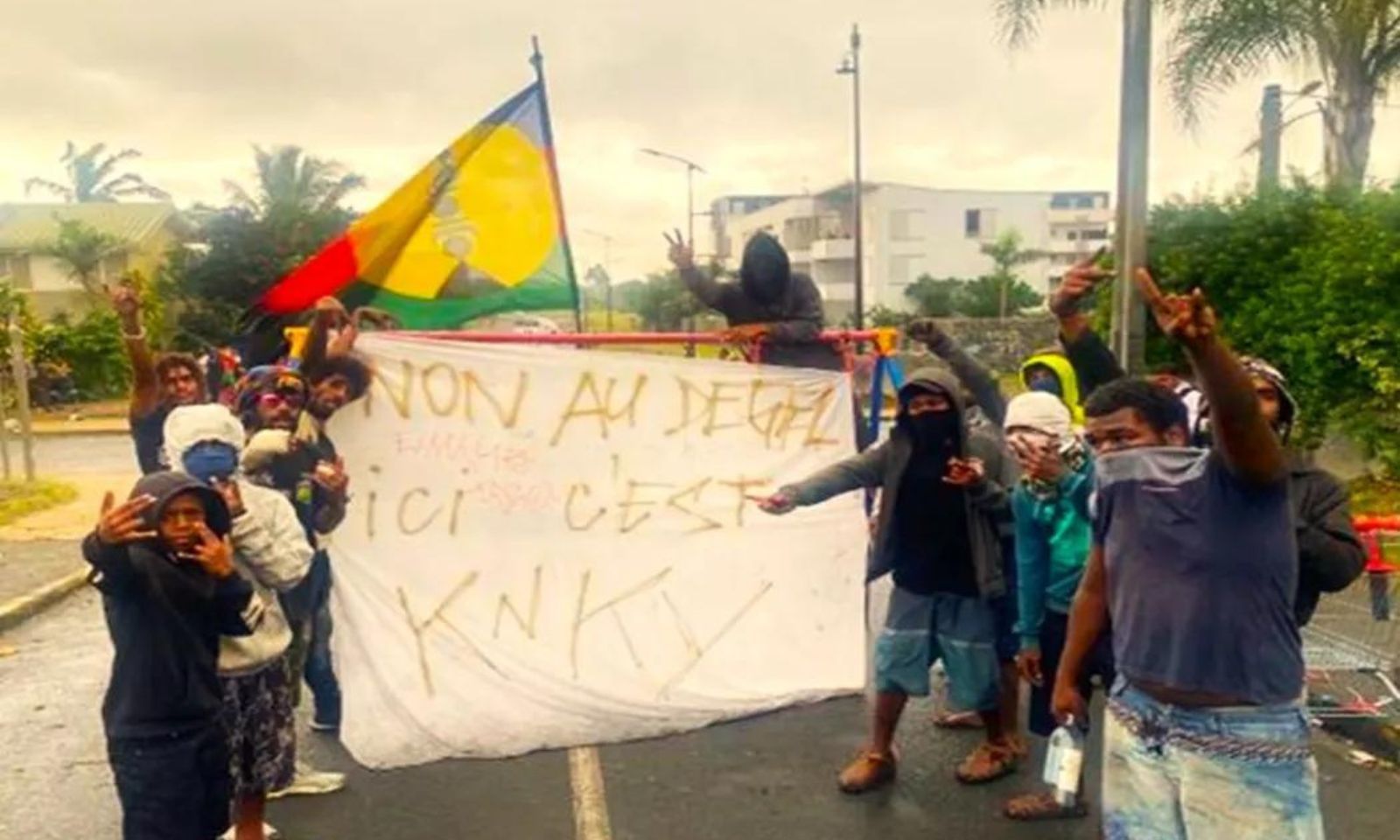
Pro-independence supporters on the streets of Noumēa. Photo/Nouvelle Caledonie La1ere
“It depends very much on how you define it. Civil war could be a massive outbreak of violence, could be sporadic violence here and there, and could be fought at different levels in different ways. So I think what's happening now is, it's been going on at different levels. It's just that it's coming to the surface.
“And I think the French president's visit will probably do two things, it'll probably make things worse now that the French president, the source of all the trouble - from the point of view of the Kanaks, is there. So it's time to show public displeasure or secondly, it might create space for diplomatic negotiations with the Kanak leaders.
“And of course, a lot of them are quite moderate and they would prefer the negotiations, the peaceful process forward rather than violence.”
New Caledonia is one of the largest economies in the Pacific, with its soils containing about 25 per cent of the world’s nickel resources. However, in 2019, the country produced just over a third of its annual capacity.
In March 2021, Vale - the majority owner of the Tesla-Goro Mine partnership - was sold to Prony which includes Swiss commodity trader Trafigura with New Caledonian provincial authorities and businesses claiming 51-per cent stake in the operation.
The French territory is also a holiday hotspot although the country’s tourism sector is underdeveloped, with 100,000 visitors a year, compared to 400,000 in the Cook Islands and 200,000 in Vanuatu.
More than 10,000 Kiwis visited New Caledonia, Statistics New Zealand’s 2018 data showed but twice the number of people from there visited Aotearoa.
Fifty Kiwis live in Noumēa where the latest conflict is centred and the New Zealand government has said it is working with the local authorities to get its nationals home safe.
Mike Lightfoot and his wife’s four-day break to “play some golf and get some sun before winter sets in” turned unmemorable when rioting erupted the day before they were due to fly out.
More than 3000 tourists have been trapped by the unrest, but the Lightfoots are happy they are coming home. A military transport aircraft landed in Noumēa on Monday to evacuate the foreign nationals, local media reported.
Watch Mike Lightfoot's interview below.
“Initially, we didn't have much contact with the New Zealand government MFAT. But I have to say that they have stepped up relatively well now. We are hearing from them regularly and we're meeting daily,” Lightfoot told Terite.
“We understand that this has nothing to do with the New Zealand government. This is the French government's decision to allow the Hercules in to pick us up.
"We've been told that the New Zealand Defence Force is waiting on the ground off Whenuapai to go as soon as they get the opportunity. And that’s what we are hoping for," he said.
President Macron’s surprise visit to New Caledonia this week followed a Cabinet meeting in Paris, French government spokesperson Prisca Thevenot said in a statement.
“Faced with the outbreak of violence, the priority is the return of order to allow dialogue to resume in New Caledonia. We are clear: Much remains to be done before the return to normal. The government is fully mobilised."
But Ratuva said to quell any further tensions, Macron needs to revisit the Noumēa Accord.
He said the document is the only agreement the pro-independence movement recognises and the French government must realise that.
“The Noumēa Accord was supposed to provide the space for a slow evolutionary process to New Caledonia’s self-government. But the series of referendums went against the Kanaks so it's probably a good idea to go back and re-look at that agreement.
“France should take the initiative to give more autonomy to the territory, particularly for the Kanaks, otherwise it would go on forever. Using force and bringing in the French military might to try and contain the violence will not work in the long run.
“There has to be a peaceful process of re-looking at the Noumēa Accord and re-looking at the process of eventual decolonisation of New Caledonia.”
Pro-independence leader Jimmy Naouna has been contacted for comment.
Macron is expected to arrive in Noumēa late on Wednesday.
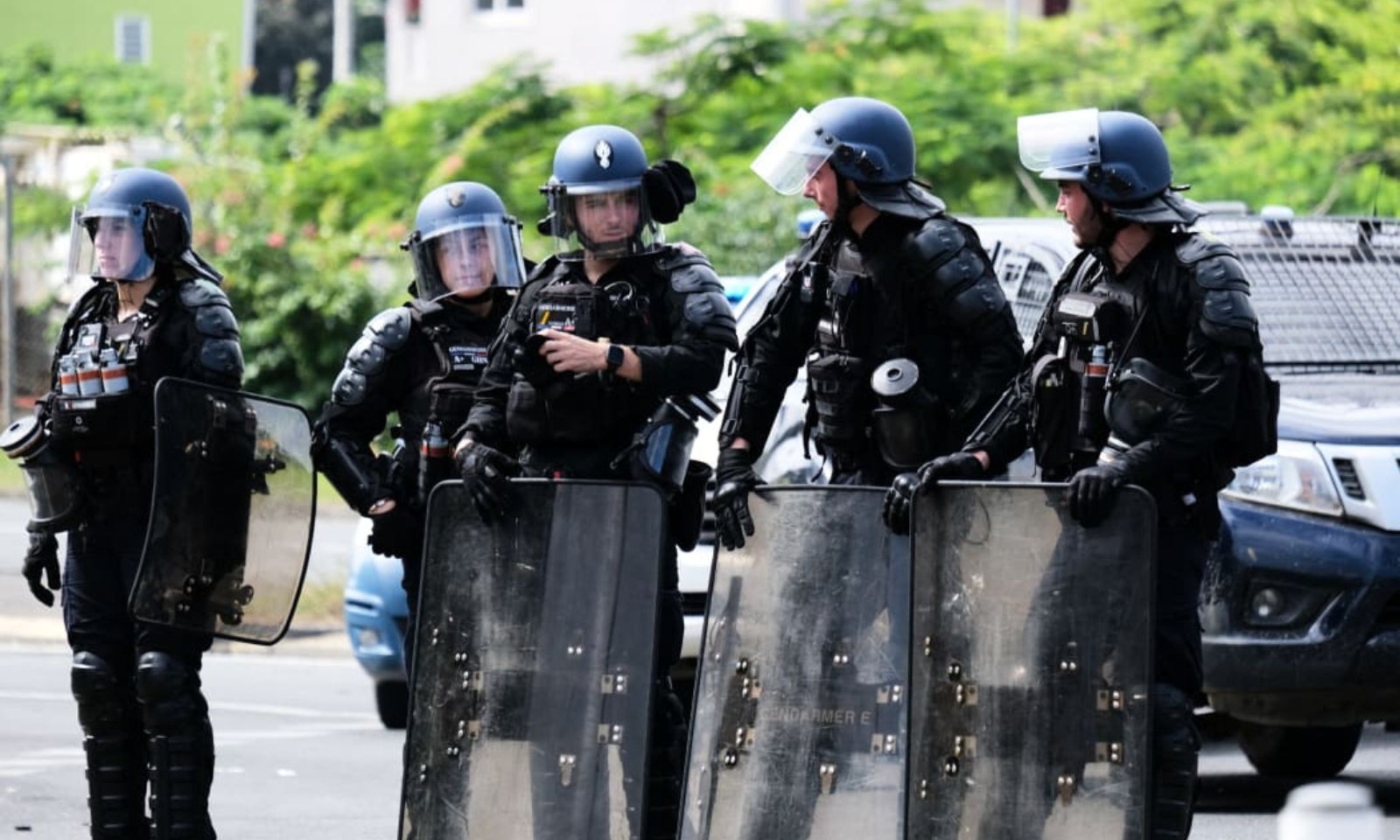
French Gendarmerie stand with their shields at the entrance of the Vallee-du-Tir district, in Noumēa. Photo: AFP/Theo Rouby